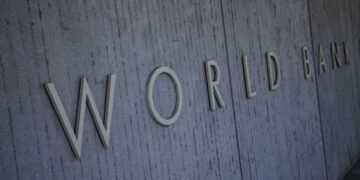BoG Commits to Supporting 24-Hour Economy Policy Through Monetary Tools, Risk Management and Financial Inclusion
The Bank of Ghana (BoG) has reaffirmed its commitment to supporting government’s flagship 24-hour economy policy, stressing the central bank’s role in maintaining financial stability, expanding credit access, and strengthening the resilience of the banking sector.
Delivering a keynote address on behalf of Governor Dr Johnson Asiama at a roundtable discussion themed “Financing Ghana’s 24-Hour Future: The Role of Banks in the Transformational Journey” in Accra, Mr Ismail Adam, Director of Banking Supervision, noted that the success of the policy will depend heavily on a sound and stable financial sector.
“As stipulated in Section 3 of the Bank of Ghana Act, the central bank has a duty to support government’s economic policy and promote growth and development,” he remarked.
According to him, the 24-hour economy would thrive if businesses are guaranteed affordable credit, efficient payment systems and investor confidence anchored in financial sector stability. He highlighted four critical areas where the BoG’s role will be instrumental:
- Monetary Policy and Credit Expansion: The BoG intends to leverage its monetary policy tools to stabilise inflation and reduce interest rates, thereby enhancing access to credit. He emphasised, however, that banks must improve their credit risk frameworks to avoid a further build-up of Non-Performing Loans (NPLs).
- Banking Sector Safety and Soundness: The Governor reiterated the Bank’s supervisory role, including the enforcement of prudential regulations, corporate governance and risk management directives to shield the system from systemic risks.
- Payment Systems Infrastructure: Highlighting the role of technology, Dr Asiama said efficient digital and electronic payment systems—including ATMs and online platforms—are vital for ensuring round-the-clock financial services in line with the 24-hour policy.
- Development Finance and Risk-Sharing: The BoG pointed to institutions such as Development Bank Ghana (DBG) and GIRSAL as crucial in bridging long-term financing gaps in agriculture, manufacturing and other critical sectors. He noted that the central bank’s approval of GIRSAL’s credit guarantees as collateral for lending has already boosted agribusiness financing.
Dr Asiama underscored the interdependence of the financial sector and the real economy, stressing that the policy’s successful implementation would not only stimulate industrial growth but also deepen the utilisation of financial services.
“In the end, the success of the 24-hour policy will hinge on maintaining macroeconomic stability, broadening financial inclusion, and ensuring that our payment systems facilitate smooth and secure transactions,” he concluded.








